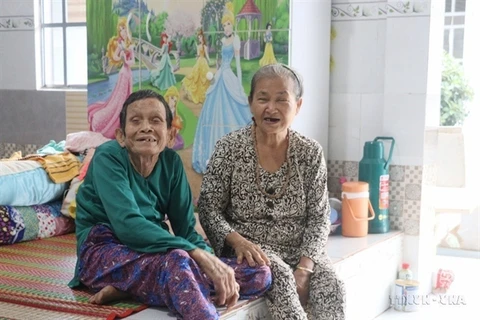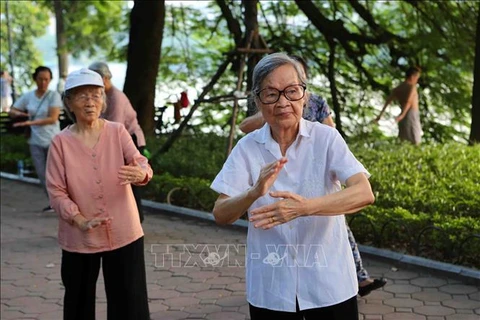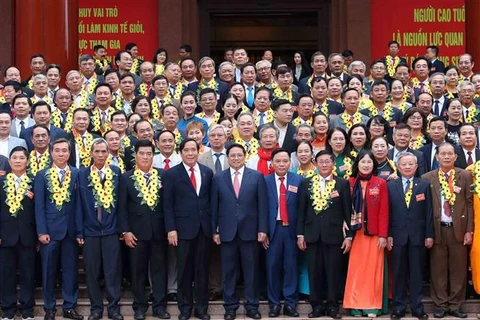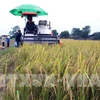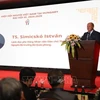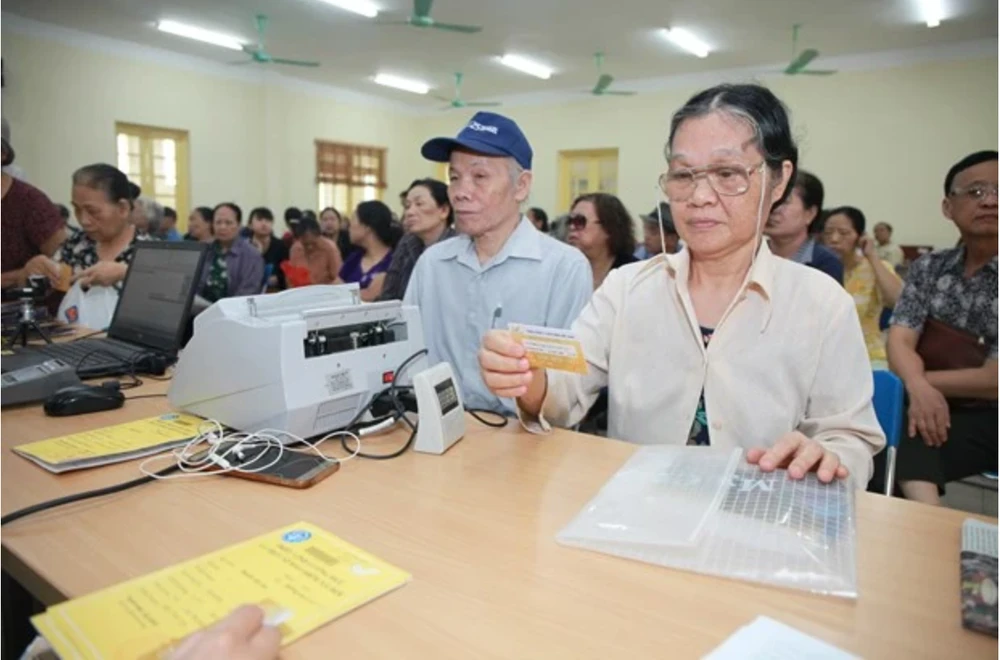
Hanoi (VNA) – As one of the fastest-aging countries in the world, Vietnam is facing a host of challenges as its people would grow old before getting rich.
With a low proportion of the elderly receiving pensions, the National Assembly and the Government have issued new policies on pensions, social benefits, and employment to ensure income for elderly people.
Filling gap in social benefits
According to Vietnam Social Security (VSS)’s statistics for 2023, only 2.7 million elderly people in the country receive pensions from the social insurance fund, accounting for just 16.77% of the total elderly population. Their average monthly pension is 4.75 million VND (190.27 USD).
To expand social welfare for the elderly, the newly passed 2024 Social Insurance Law supplements regulations on retirement allowance and monthly benefits for those who have participated in social insurance but do not qualify for a full pension.

Nguyen Duy Cuong, Deputy Director of the Social Insurance Department at the Ministry of Labour, Invalids, and Social Affairs (MoLISA), said the law reduces the qualifying age for social pensions to 75 from 80. For those in poor or near-poor households, the eligible age is between 70 and 75.
The monthly social retirement allowance is determined by the Government based on the country’s socio-economic conditions and the state budget.
With the adjustments of the law, set to take effect on July 1, 2025, an estimated additional 1.2 million elderly people without pensions or social insurance benefits will receive monthly social retirement payments.

The law also stipulates a monthly allowance for labourers who are not eligible for a pension and have not yet reached the age for social retirement benefits. Vietnamese citizens who reach the retirement age but have not met the minimum 15 years of social insurance contributions and are under 75 years old will receive a monthly allowance. This is provided they do not opt for a one-time social insurance payout or preserve their contributions. Notably, during the period of receiving this monthly allowance, the State will cover their health insurance contributions.
Employment support for the elderly
In fact, social assistance policies aimed at supporting the elderly without pensions often provide only minimal aid, insufficient to fully cover their income gaps. The lack of savings, absence of pensions, or low pensions and social benefits are the primary reasons forcing many seniors to continue working to make a living.
According to the General Statistics Office, up to 78.91% of the elderly in Vietnam are self-employed or work in household businesses. Additionally, 54.63% of them are employed in the agro-forestry-fishery sector characterised by low productivity and heavy reliance on natural conditions. Furthermore, 40.47% are engaged in simple, unskilled jobs.
Despite many seniors still in the workforce, the MoLISA has noted the lack of regulations supporting older labourers in transitioning and finding jobs in the context of an aging population. As a result, they have very few job options, primarily focusing on roles such as security personnel, domestic helpers, and caregivers for the elderly.

The elderly in Vietnamese society find it hard to seek suitable jobs as labour regulations remain quite limited, and a dedicated job market for the group has yet to emerge.
In the revised draft Employment Law, the ministry has included a specific section dedicated to employment support for the elderly. Accordingly, older labourers who are still capable and willing to work will receive state assistance in training, certification of national vocational skills, employment counseling, job seeking, and access to loans.
Dr. Dinh Huu Phi, Director of the Vietnam Institute of Elderly Studies, said such employment policies for the elderly not only meet their needs and aspirations but also harnesses their experience and knowledge.

As of 2023, Vietnam had 16.1 million elderly people, or about 17% of its population. By 2030, this figure is expected to rise to over 20 million, marking a critical period as the country approaches its aging population phase from 2024 to 2036. Currently, it ranks among the top 10 countries with the fastest aging populations in the world./.
